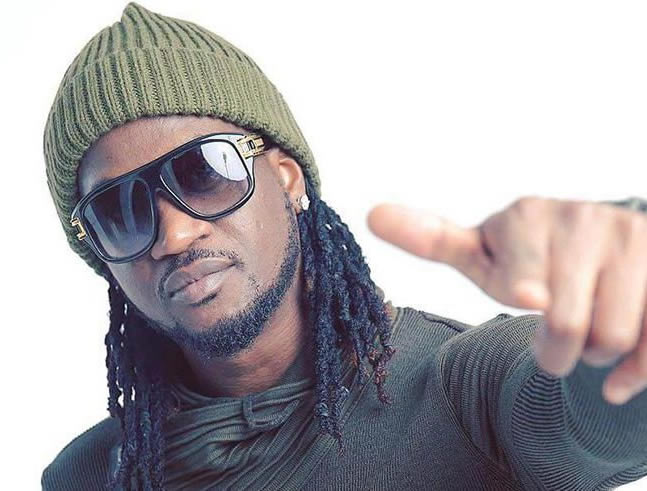Rudeboy culture emerged in Jamaica during the 1960s, which was a time of political and social upheaval. The term “rudeboy” was originally used to describe young, working-class men who were involved in street gangs and criminal activities. However, over time, the term became associated with a distinctive style of dress, music, and behavior that reflected the rebellious spirit of the youth culture in Jamaica. Rudeboys wore sharp suits and fedoras and listened to ska and rocksteady music. They were known for their love of dancing, partying, and flirting with women. Rudeboy culture also had a political dimension as many young Jamaicans felt marginalized by the government’s neglect of their communities.
Wiki, Affairs, Biography, LifeStyle
| Name | Rudeboy |
| Profession | Musical Artist, Singer, entrepreneur, and social media star. |
| Date of Birth | 18-Nov-81 |
| Age | 40 years old |
| Height | 5′ 11″ |
| Net Worth | USD 8-9 Million |
| State Of Origin: | Anambra State |
| Nationality: | Nigerian |
| Parents: | The Okoye |
| Children: | Andre Okoye, Nadia Okoye, Nathan Okoye |
| Siblings: | Jude Okoye, Tony Okoye, Mary Okoye, Ifeanyi Okoye, Lilian Okoye |
| Girlfriend • Wife: | Anita Okoye |
Early Life
P Square at some point was the most popular musician in Nigeria but lost that after their split. As a result, we are always asking Mr P and Rudeboy who is richer? this question is one of the most searched on Google today and while you are here, this post answers that for you. Paul Okoye, who is better known as Rudeboy, is a Nigerian singer. He rose to fame in the 2000s as a member of the P-Square duo with his identical twin brother Peter Okoye. After the disbandment of P-Square in 2017, both band members sought separate musical careers. Rudeboy released his debut solo tracks titled ‘Fire Fire’ and ‘Nkenji Keke’ in 2017. His popularity has soared higher beyond the expectation of some fans of the P-Square group who thought the group was more of dance and moves and thought he would not survive for long.
Education
Paul ‘Rudeboy’ Okoye studied at St. Murumba Secondary School in Plateau State Nigeria together with his twin brother, Peter also known as Mr. P. Rudeboy joined a drama club and school of music where he started performing covers songs produced by MC Hammer, Michael Jackson, and Bobby Brown together with his brother Peter.
House
Mr. P has different mansions both in Nigeria and abroad. He owns a house together with his twin brother Rude Boy in Banana Island, Lagos too. The estimated value of that house is $3.8 million.
Cars
He is a lover of exotic cars. This statement is proven by the fleet of cars he has parked in his garage. Pictures of him with one or more of his cars are also all over the internet. His car collection includes; a Range Rover, Jeep Wrangler, Mercedes Benz G-Wagon, Dodge Challenger, and a Porsche 718 Cayman.
Career
Rudeboy fashion is a style that originated in Jamaica during the 1960s and was later adopted by British youth subcultures. It is characterized by sharp, tailored suits, fedoras, narrow ties, and polished shoes. The significance of rudeboy fashion lies in its association with rebellion and defiance against societal norms. Rudeboys were often seen as troublemakers and outcasts, but their style represented a sense of pride and self-expression. The sleek look of the suits and the attention to detail conveyed an image of sophistication and elegance that contrasted with the poverty and oppression faced by many Jamaicans at the time. Today, rudeboy fashion has become a symbol of cultural identity for many Jamaicans and has influenced various subcultures around the world.
Rudeboys were a subculture that emerged in Jamaica during the 1960s, characterized by their distinctive fashion and rebellious attitudes. They were known for their sharp suits, pork pie hats, and thin ties. The rudeboy movement was closely associated with the rise of ska music, a genre that blended elements of jazz, blues, and Caribbean rhythms. Ska music became popular among Jamaican youth in the late 1950s and early 1960s, offering an upbeat soundtrack to the social upheaval of the time. The signature look of sharp suits, fedora hats, and loafers has been modernized with new materials and interpretations. Additionally, the rebellious spirit of the movement continues to inspire musicians who incorporate its themes of social justice into their lyrics. The legacy of rudeboy culture remains relevant today as a symbol of individuality, rebellion against societal norms, and a celebration of style.
Rudeboys were often depicted in ska music as symbols of rebellion and resistance against authority. As ska music spread beyond Jamaica to other parts of the world, so too did the influence of rudeboy culture on fashion and youth subcultures around the globe. The legacy of rudeboy culture in contemporary music and fashion is undeniable. Originating in Jamaica in the 1960s, the rudeboy movement was a subculture that celebrated rebellion, style, and attitude. Today, its influence can be seen and heard across various genres of music and fashion styles. From ska to hip hop and reggae to streetwear, the rudeboy aesthetic has been embraced by artists and designers alike.
